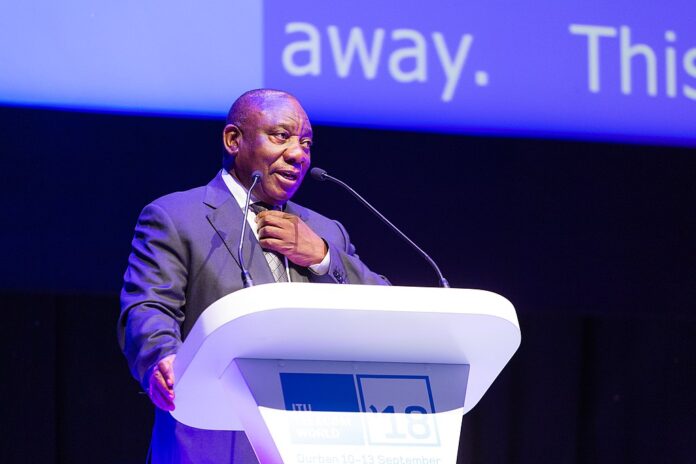ANC’s dominance threatened by rising unemployment, corruption, and power cuts as South Africa votes
In the heart of Soweto, a sea of bright yellow filled the streets as South Africans headed to the polls. Despite the visible support for the African National Congress (ANC), a sense of discontent simmered beneath the surface. For the first time since Nelson Mandela’s historic victory in 1994, the ANC faces the real possibility of losing its majority in the national elections.
Nancy Baloyi, a 48-year-old former cinema worker, exemplifies this shift. “If you see our streets, we don’t have houses; we don’t have electricity; we don’t have jobs,” she said, expressing her frustration with the party. Baloyi, who lost her job during the COVID-19 pandemic, decided to vote for the Democratic Alliance (DA), dismissing criticisms that the DA primarily represents white interests. “I just need change. That’s it,” she declared.
Polls have consistently shown the ANC polling below 50% of the national vote, a significant drop from the 57.5% it secured in 2019. The party’s support has been eroded by high unemployment, corruption scandals, and ongoing power cuts. In the 2021 municipal elections, the ANC managed only 45.6%. However, some analysts caution against writing off the ANC just yet, noting that rural voters, who are a core part of the party’s base, are often underrepresented in polls.
President Cyril Ramaphosa remains optimistic. After casting his vote at Hitekani primary school in Soweto, Ramaphosa told journalists, “I have no doubt whatsoever, in my heart of hearts, that the people will once again invest confidence in the African National Congress to continue to lead this country.”
Sibusiso Dube, a 33-year-old Soweto resident, echoed this sentiment. “My mother was supporting the ANC; my father, my granny, my great granny, they’ve all been supporting the ANC,” Dube said. He cited the recent respite from load-shedding, which has plagued the country, as a reason for his continued support. There has been no load-shedding for two months, the longest period without it in over two years.
Despite the enduring loyalty of many voters, the mood in some quarters was distinctly different. Regina Mgnumi, a 46-year-old government clerk, voted for the Economic Freedom Fighters (EFF), a Marxist-inspired party founded by former ANC youth leader Julius Malema. Mgnumi expressed strong opposition to any potential coalition between the EFF and the ANC. “I don’t want rotten potatoes spoiling the whole thing,” she said. “They will corrupt the EFF, the ANC.”
The ANC’s potential loss of majority raises significant questions about the future political landscape of South Africa. Some voters are open to the idea of coalitions with smaller parties, while others are wary of such arrangements. The outcome of this election could mark a turning point in the country’s political history.
Analysis:
The potential loss of the ANC’s majority in South Africa’s national elections represents a significant moment in the country’s political history. This shift highlights widespread dissatisfaction with the ANC, driven by issues such as high unemployment, corruption, and persistent power cuts.
From a political perspective, the ANC’s declining support reflects a broader trend of voters seeking alternatives to long-established parties. The rise of the Democratic Alliance (DA) and the Economic Freedom Fighters (EFF) indicates a diversification of political preferences. This change could lead to a more competitive political environment, where no single party dominates, necessitating coalitions and compromises.
Sociologically, the erosion of the ANC’s support base suggests a shift in generational attitudes. While older voters often remain loyal due to the ANC’s historical role in ending apartheid, younger voters seem more inclined to judge the party on its current performance. This generational divide highlights the evolving political consciousness in South Africa, where historical loyalty is increasingly being overshadowed by contemporary issues.
Economically, the persistent issues of unemployment and power cuts have played a critical role in diminishing the ANC’s appeal. High unemployment rates, particularly among the youth, have fueled frustration and disillusionment. The frequent power cuts, or load-shedding, have disrupted daily life and economic activities, further exacerbating public discontent. These economic challenges have made it difficult for the ANC to maintain its traditional support base.
On a local level, the impact of these elections will vary significantly across South Africa’s diverse regions. In rural areas, where the ANC has traditionally enjoyed strong support, the party may still perform well. However, urban areas, which have been hit harder by economic and infrastructural issues, are likely to see a stronger shift away from the ANC. This regional disparity will influence the formation of coalitions and the implementation of future policies.
From a gender perspective, women, who have been disproportionately affected by unemployment and social issues, might be seeking parties that promise more tangible improvements in their daily lives. Similarly, marginalized and minority communities, often the hardest hit by economic disparities, are likely to look for parties that address their specific needs more effectively.
The potential shift in South Africa’s political landscape also carries significant theoretical implications. It underscores the importance of accountability and performance in sustaining political support. The ANC’s struggle to maintain its majority despite its historical significance highlights the limits of legacy politics in the face of contemporary governance challenges.
In conclusion, the 2024 national elections in South Africa may herald a new era in the country’s political dynamics. The ANC’s potential loss of its majority signals a critical juncture where historical loyalty is being challenged by pressing economic and social issues. The outcomes of these elections will not only shape the immediate political landscape but also influence the long-term trajectory of governance and democracy in South Africa
